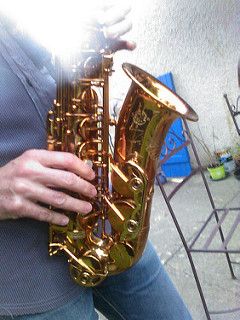Professional development opportunities for graduate students with the Teaching Support Centre this summer:
Future Prof Workshops – Friday, June 9th
UCC 147A/B
Developing Your Own Course – Aligning Outcomes and Assessments
9:15 am – 10:45 am
“A strong syllabus facilitates teaching and learning… [and creates] an organized and meaningful journey.” (Slattery & Carlson, 2005). Are you developing a new course? Join this hands-on workshop to discuss how learning outcomes provide the foundation for course development, and how well-aligned assessments and learning activities build a valuable course. Register
Communication of Science Concepts outside of the Bubble
11:00 am -12:30 pm
You may be interested in sharing your research interests to audiences outside of academia for personal, career, or even society’s benefit. With options for outreach abound (interviews, instagram, and innovative media, oh my!), how do you decide where to focus your efforts? During this session, participants will consider the benefits of an outreach strategy and practice refining their message for any science communication activity using a versatile yet simple tool. Register
Academic and Professional Communication Series – Thursday, June 15th
UCC 56
The Academic Introduction
9:00 am – 10:30 am
Join this session to learn effective introduction strategies and communicate “the one-minute research speech”. Participants will practice describing their research effectively, concisely, and discuss how their research perceived by others in the academic community. Register
Networking at Academic Conferences
10:45 am – 12:15 pm
Interacting with new people and developing connections and contacts for career purposes can be intimidating for some! Join this panel discussion to hear how other graduate students have made the most out of attending academic conferences. Panelists from disciplines across campus will share their experiences and provide concrete suggestions for successful networking. Panelists: Danielle Brewer-Deluce (Anatomy and Cell Biology), Kate Traill (English and Writing Studies), and Jantina Toxopeus (Biology). Register
The Art of Creating and Presenting Research Posters
1:00 pm – 2:15 pm
In this session we explore the key characteristics of research posters and learn about strategies used by experienced poster presenters. Bring a poster you have created (or are working on) and practice explaining your research to peers. Register
Netiquette: Communicating with Your Students
2:30 pm – 4:00 pm
During this 90 minute workshop, participants will learn strategies they can use to help their undergraduate students communicate professionally. Our discussion will include examples of setting appropriate boundaries with students in online environments and responding to challenging student emails. Together, we will analyze several case studies in order to illustrate university policies around communicating with students. Register
Teaching Assistant Training Program (TATP) – June 20-22nd
Teaching Support Centre, Room 121
TATP is a hands-on, two-and-a-half- day program taught by current Teaching Assistants (TAs) and designed for new TAs embarking on their teaching careers. Details and Registration
photo credit: A_Peach Flower pot via photopin (license)









